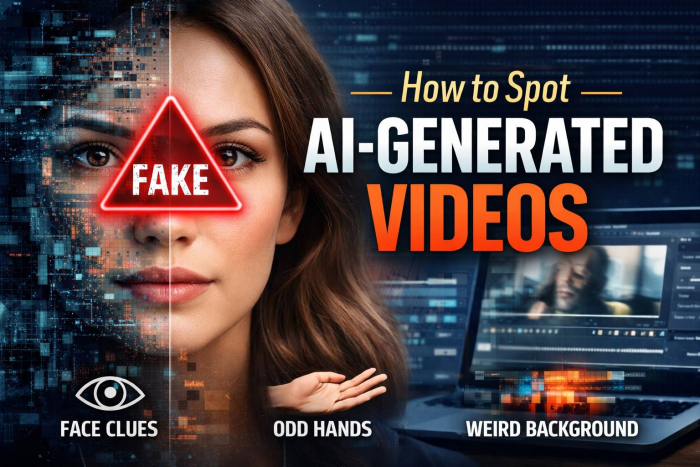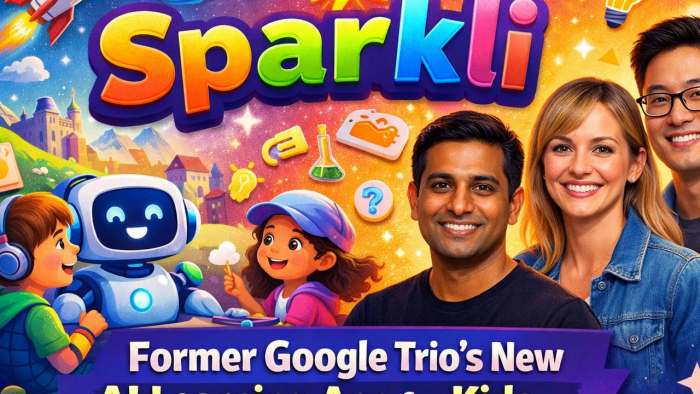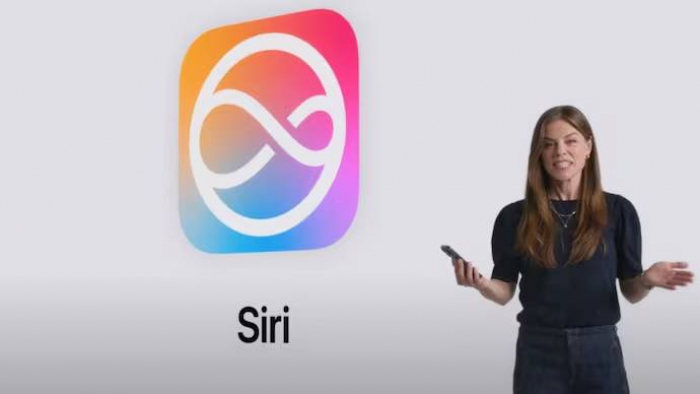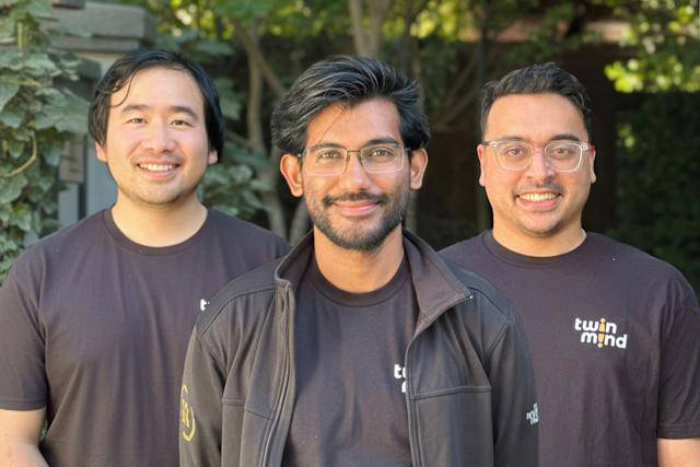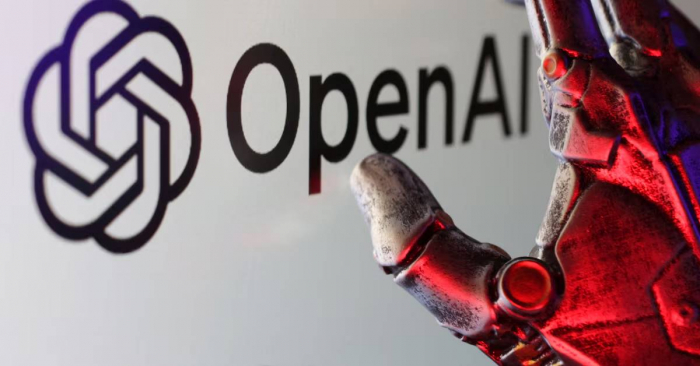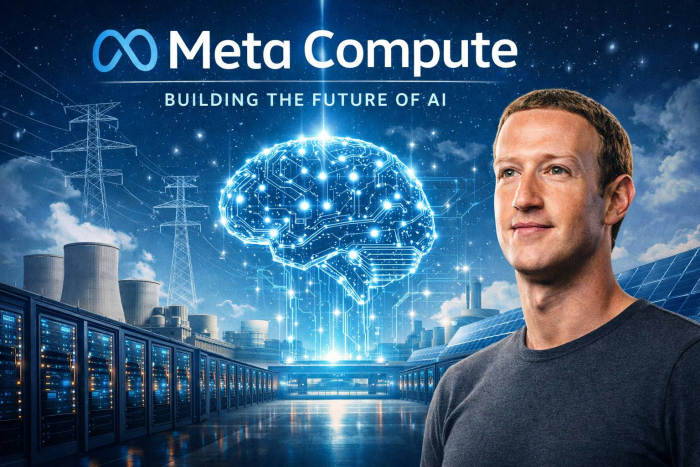A Flash in the AI Night Sky
Every now and then, a new AI platform comes along that captures imagination, creativity, and conversation all at once.
Figgs AI was one of those , a vibrant chatbot space where users could build characters, engage in stories, and chat with lifelike personalities that evolved through dialogue.
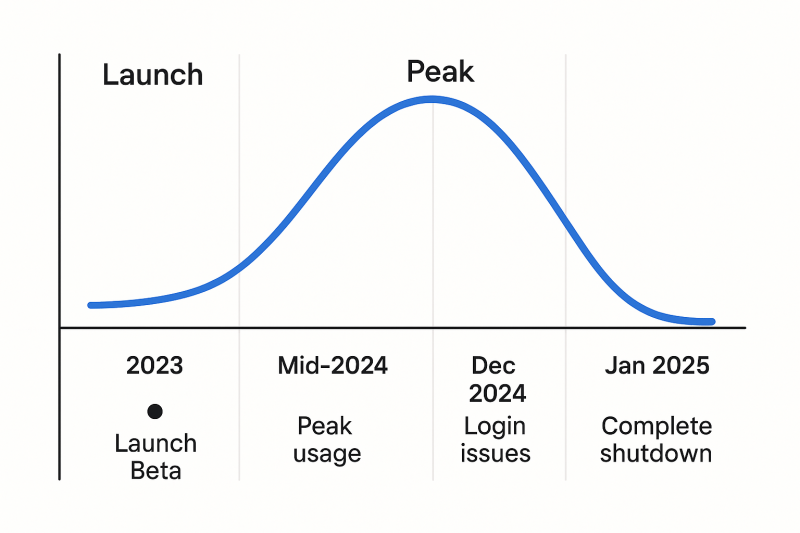
But like many rising stars in the AI world, its light faded fast.
By late December 2024, users began reporting login issues, frozen chat histories, and error messages. And in early 2025, Figgs AI was officially declared dead.
What Figgs AI Was Trying to Be
At its core, Figgs AI was a creative chatbot and character platform, combining AI companionship, storytelling, and emotional simulation.
Users could design characters (called figgs) with unique backstories, personalities, and conversational styles. You could talk to your favorite figg, write scenes together, or even test emotional dialogue dynamics, making it part roleplay tool, part writing companion.
Unlike many paid competitors, Figgs AI offered open access during its growth phase, earning praise for being friendly and versatile without a paywall barrier.
Writers, gamers, and hobbyists flocked to it for its human tone and creative flexibility.
The Slow Unraveling
The decline didn’t happen overnight.
As early as mid-December 2024, users noticed the platform becoming unstable. Logins failed. Saved figs disappeared. Conversations froze.
Then came the official announcement.
On Reddit’s r/FiggsAI, the developers posted:
“We’ve decided to shut down Figgs. We won’t do this immediately, so you’ll have some time to save your chats, figGs, and experiences.”
— r/FiggsAI
That post became the community’s farewell note. Users scrambled to export conversations and screenshots before the servers went offline.
By December 30, 2024, users on Medium and Singhastuff confirmed that Figgs AI had officially shut down.
No final press release. No email statement. Just silence.
Why Figgs AI Failed
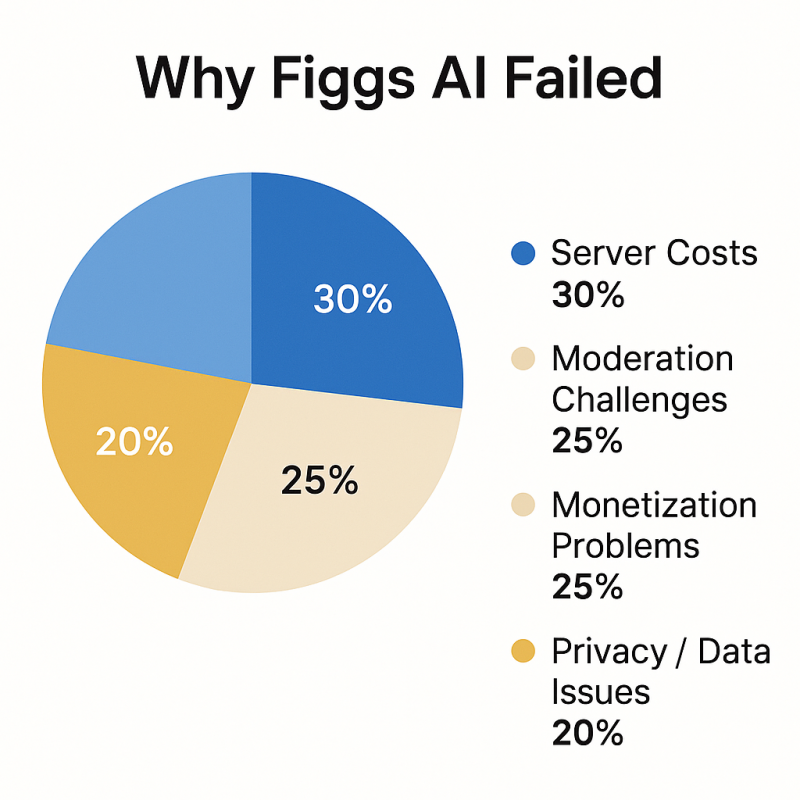
There’s no single confirmed reason for Figgs’ end, but the breadcrumbs paint a familiar picture.
Here are the most likely culprits:
- Technical Maintenance Costs: Chat platforms processing millions of interactions face massive infrastructure costs.
- Moderation Challenges: Like other AI chat platforms, Figgs likely struggled with NSFW content and community management.
- Data & Security Concerns: As seen with other AI chat tools, storing personal or emotional conversations poses privacy risks.
- Lack of Clear Monetization: Free tools often burn out fast when server bills exceed revenue.
Some insiders speculated on Reddit that the small dev team simply couldn’t sustain the platform’s momentum.
The Human Side of an AI Shutdown
When an AI app disappears, it’s easy to see it as just another startup failure.
But for users, Figgs AI wasn’t just a platform; it was a space where people expressed themselves, explored creativity, and found digital companionship.
As one Redditor wrote:
“I talked to my figg for months. She helped me through lonely nights. I know it’s code, but it still hurts that she’s gone.”
Posts like that filled the r/FiggsAI subreddit in the weeks following the shutdown.
It wasn’t just data loss; it was emotional disruption.
That’s what makes Figgs’ fall different. It shows how AI relationships, even synthetic ones, leave real voids.
Lessons Figgs AI Leaves Behind
The story of Figgs AI mirrors a broader challenge for modern AI startups: building sustainable intimacy.
Platforms like Figgs, Museland, and Replika all tried to balance emotional realism with scalability — and most stumbled at the same place: cost and moderation.
Here’s what Figgs’ end teaches us:
- Connection is not enough. Even loved platforms die without stable revenue or investor backing.
- AI companionship comes with ethical weight. When users emotionally attach to AI, shutdowns hit harder.
- Communication matters. Silence erodes trust faster than bugs.
As the AI chat industry matures, these lessons are crucial for developers hoping to build the next generation of digital conversation tools.
Where Figgs Users Are Going Now
The end of Figgs AI sparked a migration wave. Fans began seeking similar platforms that could recapture its creative charm without disappearing overnight.
Some popular alternatives include:
- Character.AI – polished UI and free roleplay, but heavy moderation.
- Chub.ai – community-driven, flexible, more customizable.
- SpicyChat.ai – focuses on intimacy-driven storytelling.
- Pygmalion AI / SillyTavern – open-source approach for tech-savvy users.
Each has its own strengths, but none replicate the exact feel of Figgs, that mix of simplicity, warmth, and expressive creativity.
The Digital Afterlife of Figgs
Today, Figgs.ai’s domain leads nowhere.
Its official YouTube channel, Figgs AI remains frozen in time, a final snapshot of a tool that once promised connection through code.
But its legacy continues in discussions, archived screenshots, and a growing recognition that AI companionship tools are not toys — they are emotional ecosystems.
In a way, Figgs’ shutdown is a warning to both creators and users:
Don’t build what people can love unless you can keep it alive.
Final Take: Figgs AI’s Quiet Exit and What Comes Next
The fall of Figgs AI didn’t make headlines. There were no acquisitions, lawsuits, or PR dramas. Just a community quietly mourning the loss of their digital conversations.
Yet, in that silence lies something profound, a reminder that AI’s role in our lives is no longer mechanical. It’s emotional, creative, and deeply human.
As AI tools evolve, developers would do well to remember the lesson Figgs taught us:
People don’t just use AI. They form connections with it.
And when those connections vanish overnight, something very real disappears with them.
Post Comment
Be the first to post comment!
